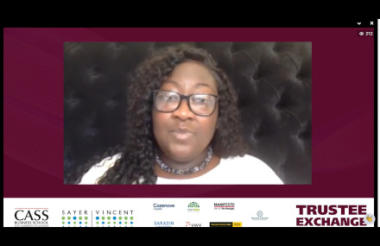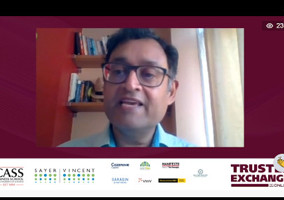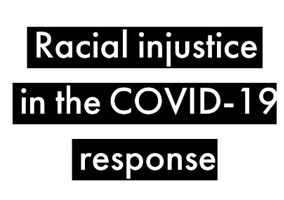Phyll Opoku-Gyimah has warned that charities must not be “performative” if they are to be successful in tackling racism in the sector.
Opoku-Gyimah was the keynote speaker on the second day of Civil Society Media’s Trustee Exchange event.
She is the founder and executive director of UK Black Pride and chief executive of the Kaleidoscope Trust. The latter is an international LGTB+ human rights charity that seeks to uphold human rights for people in the Commonwealth and remove colonial-era laws.
Opoku-Gyimah said: “We need to not be performative in our gestures, and our approach to effective change. Being performative gets us nowhere and we will end up back here in the next two to three years”.
However, she added that she is seeing progress. She said “it feels as if there is a shift”, with people “having open and honest conversion”.
“I am hopeful about the future. I think that Covid-19, as devastating as it has been to many of us, as an individual there has been an opportunity to press this reset button, to sit and pause and look at how people are working collaboratively.”
But she warned that the sector still needs to ensure a fundamental shift in its power structures.
‘You do not need me to tell you how bad racism is within the charity sector’
Opoku-Gyimah emphasised the work that is needed to tackle racism in the charity sector. “I am very aware of the space in the sector and where we find ourselves, and the challenges presented – not just because of Covid-19,” she said.
She added: “You do not need me to tell you how bad racism is within the charity sector, plenty of black and brown people have been yelling this for years and we have been talking about it for so long.”
Opoku-Gyimah spoke about how it is often tiring as a lone black voice in a system that is very white-dominated.
“My heart at the moment does feel very heavy. Although it is hopeful, it is also tired. My body is tired, my mind is tired,” she said.
“I say these things not to make people feel guilty. This is about us feeling uncomfortable about the situation.
“I think guilt really serves no purpose and is very self-indulgent. So this is about us needing to be in the moment and not repeating ourselves, for us to actually heed the call”.
Opoku-Gyimah told delegates about her experience of creating a Pride celebration for black LGBTI+ people to a group of thought leaders in 2004.
“That was incredibly challenging because I had to justify the need for a Black Pride in the UK. I had to justify my own existence.” She was told there would never be a Black Pride in the UK, and that she should join the ‘normal’ Pride.
She said that “when you are approaching thought leaders, those who hold power, those who have privilege in society, those who have platforms to make and affect change”, and they then act in this way, it shows that having a platform “does not make you exempt from being a bigot”.
‘We need to do some unlearning’
Opoku-Gyimah said it is important for leaders to see the need to “reprioritise and restrategise”.
“I want to say to you, in short, we need to open our eyes, we need to think, we need to breathe, pause, read, enquire and search,” she said.
The UK Black Pride founder emphasises this rather than offering a direct call to action, because “I trust that in the leadership positions you already hold, that you know this, and in knowing this it is about what you need to do about it”.
She said: “I do not want to hold your hand through the necessary changes. I do not believe it is my job as a black woman to be the only one talking about structural and systemic racism in our charity sector.”
This means people in positions of power and privilege showing up and stepping up. “We talk about allyship in this, and it is very situational. It is about fighting, opening platforms, revisiting your strategy, policy, and procedures.”
Opoku-Gyimah urged delegates to take the steps that CharitySoWhite has been campaigning for.
“If you want to dismantle structures which are systemically and systematically institutionally racist, we need to do some unlearning because it starts with us. It starts with people who are holding positions of power and influence,” she said.
Opoku-Gyimah also spoke about the importance of representation in leadership. She explained that it can be isolating to work in a place where you do not necessarily see anybody that looks like you or has a shared lived experience.
She said: “It does not matter in a tokenistic way, but it matters in making sure that diversity is woven through the fabric of the charity sector and society.”
“If you are looking to really challenge and dismantle structures, it starts with unlearning and has to be driven by those we are in service of. It is not for us to impose our values and our approach on how they do things,” she said.
“We do not come into the charity sector just because we think it is a good thing to do, we come into the charity sector because we really want to see change and deliver services which are fundamentally important to the people we serve.”
Related articles
#CharitySoWhite: Now is the time to tackle racial injustice in your charity's response to Covid-19
#CharitySoWhite warns that if charities put racial justice work on the backseat during the coronavirus crisis they will make it harder for the sector to help people most affected by the pandemic.












